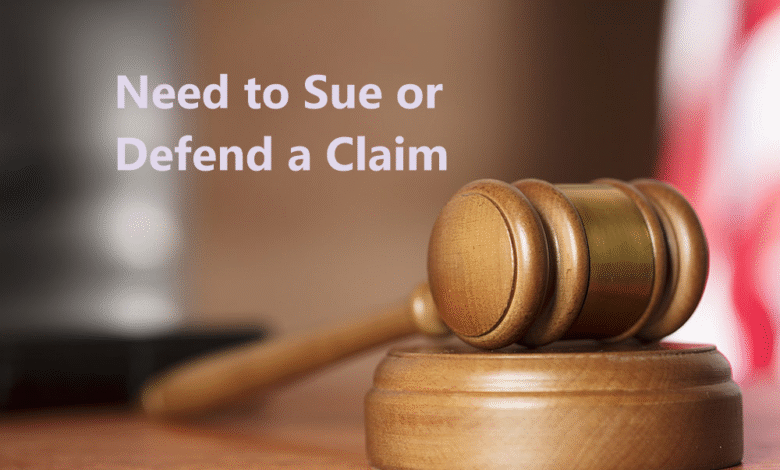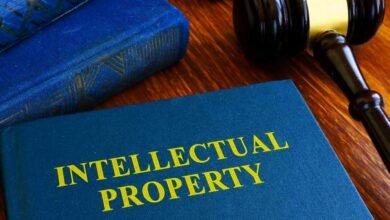Need to Sue or Defend a Claim? Get Lawsuit Help Fast
Defend a claim? Get fast lawsuit help from experienced attorneys. Protect your rights & maximize compensation. Free case review available.

Navigating the complex world of litigation can be overwhelming, especially when you’re facing the prospect of filing a lawsuit or defending against legal claims. Whether you’re dealing with a personal injury case, contract dispute, employment issue, or any other legal matter, understanding your options and securing proper lawsuit help is crucial for protecting your rights and achieving the best possible outcome.
The legal system operates on strict timelines, procedural requirements, and intricate rules that can significantly impact your case’s success. Without proper guidance, even the strongest claims can fail due to missed deadlines, improper documentation, or procedural errors. This comprehensive guide will walk you through everything you need to know about obtaining legal assistance, understanding the litigation process, and making informed decisions about whether to pursue or defend against legal action.
When facing legal disputes, time is often of the essence. Statutes of limitations can bar your claims forever if you wait too long, while defendants have limited time to respond to complaints. The sooner you seek professional attorney services, the better positioned you’ll be to protect your interests and build a strong case. This article will provide valuable insights into finding the right legal representation, understanding court procedures, and maximizing your chances of success in any legal proceeding.
Understanding When You Need Lawsuit Help
Recognizing Legal Issues That Require Professional Assistance
Many people wonder when they should seek legal representation for their disputes. While not every disagreement requires court intervention, certain situations clearly warrant professional lawsuit help. Personal injury cases involving significant medical expenses, lost wages, or permanent disability typically require experienced attorneys who understand insurance negotiations and court procedures. Similarly, contract disputes involving substantial financial stakes, complex business relationships, or unclear terms often benefit from professional legal analysis.
Employment-related issues such as wrongful termination, discrimination, harassment, or wage disputes frequently require specialized knowledge of labor laws and regulations. Legal professionals in these areas understand the intricate web of federal and state employment statutes, helping ensure your rights are properly protected. Property disputes, whether involving real estate transactions, boundary issues, or landlord-tenant conflicts, often involve complex legal principles that benefit from professional guidance.
Family law matters including divorce, child custody, alimony, and property division carry significant long-term consequences that make professional legal counsel essential. These cases often involve emotional stress that can cloud judgment, making objective professional advice invaluable. Additionally, cases involving government agencies, regulatory compliance, or administrative proceedings typically require attorneys who understand specific procedural requirements and administrative law principles.
Evaluating the Strength of Your Case
Before pursuing litigation, it’s crucial to honestly assess your case’s merits with professional legal advice. Strong cases typically involve clear evidence of wrongdoing, quantifiable damages, and defendants with sufficient assets to satisfy potential judgments. Your attorney will evaluate factors such as witness availability, document preservation, expert testimony requirements, and potential defenses the opposing party might raise.
Litigation attorneys also consider practical factors including the cost of pursuing the case, the time investment required, and the likelihood of collecting any judgment obtained. Sometimes alternative dispute resolution methods such as mediation or arbitration can achieve better results at lower costs and with less stress than traditional court proceedings. Understanding these options early in the process can save significant time and money while potentially preserving important business or personal relationships.
Read More: Texas Small Claims Court Filing a Lawsuit Without a Lawyer
Types of Legal Claims and Defense Strategies
Personal Injury Claims
Personal injury lawsuits represent one of the most common types of civil litigation, encompassing everything from automobile accidents to medical malpractice, slip and fall incidents, and product liability cases. These cases typically operate under negligence principles, requiring plaintiffs to prove that defendants owed them a duty of care, breached that duty, and caused compensable damages as a result.
Legal experts in personal injury law understand the complexities of working with insurance companies, medical providers, and expert witnesses to build compelling cases. They know how to properly document injuries, calculate future medical expenses and lost earning capacity, and negotiate settlements that fairly compensate clients for their losses. Defense strategies in these cases often focus on challenging causation, disputing the extent of injuries, or arguing comparative negligence to reduce potential damages.
Contract Disputes
Business and personal contract disputes require careful analysis of agreement terms, performance obligations, and potential breach scenarios. Litigation support in these cases often involves detailed document review, witness interviews, and expert analysis of industry standards and practices. Common contract disputes include breach of purchase agreements, service contracts, employment agreements, and partnership arrangements.
Defense strategies in contract cases might involve arguing that contracts were never properly formed, that terms are unconscionable or unenforceable, or that the plaintiff materially breached first. Legal professionals also evaluate potential counterclaims, cross-claims, and third-party liability issues that could complicate or strengthen their client’s position.
Employment Law Matters
Workplace legal issues have become increasingly complex as employment laws continue to evolve at federal, state, and local levels. Attorney consultation in employment matters often involves analyzing discrimination claims, wrongful termination allegations, wage and hour disputes, and workplace harassment complaints. These cases require attorneys who stay current with changing regulations and understand the intersection of various employment statutes.
Defense strategies in employment cases frequently focus on legitimate business reasons for employment decisions, proper documentation of performance issues, and compliance with established company policies and procedures. Legal representation in these matters often involves extensive discovery, depositions of key witnesses, and expert testimony regarding industry standards and practices.
Finding the Right Legal Representation
Researching Qualified Attorneys
Selecting appropriate legal counsel is perhaps the most critical decision you’ll make in any litigation matter. Start by identifying attorneys who specialize in your specific type of case, as legal expertise varies significantly across practice areas. Law firms that handle personal injury cases may have limited experience with complex commercial litigation, while corporate attorneys might not be the best choice for family law matters.
Research potential attorneys through state bar association websites, which provide information about licensing, disciplinary history, and areas of specialization. Online reviews and ratings can provide insights into client satisfaction, but focus on detailed reviews that discuss specific aspects of the attorney’s performance rather than simple star ratings. Many legal directories also provide peer ratings and professional recognition information that can help evaluate attorney credentials.
Questions to Ask Potential Attorneys
During initial attorney consultation meetings, prepare specific questions about the lawyer’s experience with cases similar to yours, their typical approach to litigation strategy, and their fee structure. Ask about their case load, support staff, and how they communicate with clients throughout the legal process. Understanding their trial experience is crucial, as many cases settle but the threat of trial often influences settlement negotiations.
Discuss realistic timelines, potential costs, and likely outcomes based on the attorney’s experience with similar cases. Legal professionals should be able to explain their strategy, identify potential challenges, and discuss alternative approaches if initial strategies prove unsuccessful. Pay attention to how well they explain complex legal concepts in understandable terms, as effective communication will be essential throughout your case.
Understanding Legal Fees and Costs
Legal fees vary significantly depending on the type of case, complexity of issues, and attorney experience levels. Personal injury cases often operate on contingency fee arrangements, where attorneys receive a percentage of any recovery but charge no fees if the case is unsuccessful. Business litigation typically involves hourly billing, with rates varying based on attorney experience and geographic location.
Understanding the difference between attorney fees and case costs is important, as costs for filing fees, expert witnesses, depositions, and document production can add up quickly regardless of the fee arrangement. Many law firms require cost advances or retainers to cover these expenses. Discuss fee arrangements thoroughly and get written agreements that clearly explain all financial obligations and payment terms.
The Litigation Process: What to Expect
Pre-Litigation Investigation and Demand Letters
Before filing formal lawsuits, attorneys typically conduct thorough investigations to gather evidence, identify witnesses, and evaluate the strength of potential claims. This pre-litigation phase often includes sending demand letters that outline the client’s position and attempt to resolve disputes without court intervention. Legal research during this phase helps identify applicable statutes, relevant case law, and potential procedural requirements.
Many cases resolve during this pre-litigation phase through negotiation, saving clients significant time and money compared to formal court proceedings. However, thorough preparation during this stage is essential, as information gathered and positions staked out often influence later litigation strategy if court action becomes necessary.
Filing Complaints and Serving Defendants
When pre-litigation efforts fail to resolve disputes, the formal litigation process begins with filing a complaint in the appropriate court. Legal documents must comply with specific formatting requirements, include necessary allegations, and be filed within applicable statute of limitations periods. The complaint serves as the foundation for the entire case, so careful drafting is essential.
Proper service of process ensures that defendants receive notice of the lawsuit and have an opportunity to respond. Service requirements vary by jurisdiction and type of defendant, with specific rules for serving individuals, businesses, government entities, and out-of-state parties. Litigation attorneys understand these requirements and work with professional process servers to ensure proper service.
Discovery Phase
The discovery phase represents the most time-consuming and expensive portion of most litigation cases. During discovery, parties exchange information through document requests, interrogatories, depositions, and requests for admission. This process allows each side to gather evidence, understand the opponent’s case, and prepare for trial or settlement negotiations.
Legal professionals use discovery strategically to build their case while protecting sensitive information from disclosure. Understanding discovery rules and procedures is crucial, as improper responses can result in sanctions or adverse inferences that damage your case. Electronic discovery has become increasingly important as more business communications occur through email, text messages, and digital platforms.
Settlement Negotiations and Mediation
Most civil lawsuits settle before trial through negotiation or alternative dispute resolution processes. Attorney services during settlement discussions involve evaluating offers, calculating damages, and advising clients about the risks and benefits of settlement versus trial. Mediation provides a structured negotiation process with a neutral third party who helps facilitate discussions between the parties.
Understanding when to settle and when to proceed to trial requires careful analysis of case strengths and weaknesses, potential trial outcomes, and the costs of continued litigation. Legal counsel helps clients make informed decisions by providing realistic assessments of their chances at trial and the range of likely outcomes.
Defending Against Legal Claims
Responding to Complaints
When served with a lawsuit, defendants have limited time to respond, typically 20-30 days depending on jurisdiction and type of case. Failing to respond can result in default judgments that are difficult and expensive to overturn. Legal representation is crucial during this initial response period to ensure proper defensive strategies are implemented from the beginning.
Defensive responses can include denials of allegations, affirmative defenses that bar or reduce liability, and counterclaims against the plaintiff. Litigation support helps defendants evaluate these options and develop comprehensive response strategies that protect their interests throughout the case.
Common Defense Strategies
Effective defense strategies depend on the specific type of case and allegations involved. Common approaches include challenging the plaintiff’s legal theories, disputing factual allegations, arguing statute of limitations defenses, or demonstrating that the plaintiff cannot prove essential elements of their claims. Legal experts also evaluate procedural defenses such as improper service, lack of jurisdiction, or failure to join necessary parties.
Affirmative defenses such as comparative negligence, assumption of risk, or waiver can significantly reduce or eliminate liability even when some wrongdoing occurred. Attorney consultation helps defendants understand these options and develop strategies that maximize their chances of favorable outcomes.
Counterclaims and Cross-Claims
Defendants often have their own claims against plaintiffs or third parties that can be asserted through counterclaims or cross-claims. These offensive strategies can shift the dynamics of litigation and provide leverage in settlement negotiations. Legal professionals evaluate potential counterclaims early in the case to ensure they are properly preserved and asserted within required timeframes.
Strategic use of counterclaims can also help offset potential damages or create additional settlement value for defendants. Understanding the interplay between defensive strategies and offensive counterclaims requires experienced legal counsel who can navigate these complex procedural and strategic issues.
Alternative Dispute Resolution Options
Mediation Benefits and Process
Mediation offers parties an opportunity to resolve legal disputes with the assistance of a neutral mediator who facilitates negotiations but does not make binding decisions. This process typically costs less than continued litigation and allows parties to maintain more control over outcomes. Alternative dispute resolution can also preserve business relationships and provide more creative solutions than traditional court remedies.
The mediation process typically involves opening statements from each party, private caucuses with the mediator, and joint sessions to explore settlement options. Legal representation during mediation helps ensure that clients understand their rights, evaluate settlement offers appropriately, and negotiate effectively.
Arbitration Considerations
Arbitration provides a more formal alternative to traditional litigation, with binding decisions made by neutral arbitrators rather than judges or juries. Many contracts include mandatory arbitration clauses that require parties to resolve disputes through this process. Legal advice is essential to understand the implications of arbitration agreements and how they might affect your case.
While arbitration can be faster and less expensive than traditional court proceedings, it also limits appeal rights and discovery options. Attorney services help clients navigate arbitration rules and procedures while building effective cases within these constraints.
Protecting Your Rights During Litigation
Document Preservation and Evidence Gathering
Proper evidence preservation is crucial from the moment legal disputes arise. Legal professionals advise clients about litigation hold requirements that prevent destruction of potentially relevant documents, emails, and electronic records. Failing to preserve evidence can result in severe sanctions and adverse inferences that damage your case.
Gathering evidence effectively requires understanding what types of information will be relevant to your claims or defenses. Litigation support includes identifying key witnesses, locating important documents, and working with experts to analyze complex technical or financial issues.
Communication During Legal Proceedings
All communications during litigation should be carefully considered, as statements made to opposing parties, their attorneys, or third parties can be used as evidence later in the case. Legal counsel provides guidance about appropriate communication strategies and helps clients avoid statements that could damage their position.
Attorney-client privilege protects confidential communications with your lawyer, but this protection can be waived if communications are shared with third parties. Understanding these principles helps ensure that sensitive case strategy discussions remain protected throughout the legal process.
Avoiding Common Mistakes
Common litigation mistakes include missed deadlines, inadequate document production, poor deposition preparation, and unrealistic settlement expectations. Legal representation helps clients avoid these pitfalls through proper case management, thorough preparation, and realistic case evaluation.
Social media activity during litigation can create significant problems if posts contradict case positions or reveal information that damages your claims. Attorney consultation includes guidance about appropriate online behavior and privacy settings that protect your interests during legal proceedings.
Cost Considerations and Budgeting
Understanding Legal Expenses
Litigation costs extend beyond attorney fees to include court filing fees, expert witness fees, deposition costs, document production expenses, and potential trial costs. Understanding these expenses early in the process helps clients make informed decisions about pursuing or defending legal claims. Law firms should provide detailed estimates and regular updates about case expenses.
Cost management strategies include focusing discovery on essential issues, using technology to reduce document review costs, and exploring early settlement opportunities. Legal professionals help clients balance the cost of litigation against potential recoveries or the cost of adverse judgments.
Insurance Coverage Considerations
Many lawsuits involve insurance coverage issues that can affect both the defense strategy and potential recovery amounts. Liability insurance policies may provide coverage for legal defense costs and potential judgments, while first-party insurance can help cover damages in cases like property loss or business interruption.
Legal experts help clients understand their insurance coverage, coordinate with insurance company counsel when appropriate, and preserve coverage rights throughout the litigation process. Coverage disputes can create additional complexity that requires careful management to protect client interests.
Conclusion
Navigating litigation successfully requires careful planning, experienced legal representation, and realistic expectations about the process and potential outcomes. Whether you’re considering filing a lawsuit or defending against legal claims, seeking prompt attorney consultation provides the best opportunity to protect your rights and achieve favorable results.
The complexity of modern legal systems makes professional legal assistance essential for most significant disputes. From understanding procedural requirements to developing effective strategies, litigation attorneys provide invaluable guidance throughout the process. Early intervention often provides the best opportunities for cost-effective resolution and optimal outcomes.
Remember that every legal situation is unique, and general information cannot substitute for specific legal advice tailored to your circumstances. Contact qualified legal professionals promptly to discuss your situation and explore your options. With proper guidance and representation, you can navigate the legal system effectively while protecting your interests and achieving your objectives.
The investment in quality legal counsel often pays dividends through better outcomes, reduced stress, and more efficient resolution of disputes. Don’t let procedural requirements, missed deadlines, or inadequate preparation jeopardize your case. Seek professional lawsuit help today to ensure your rights are properly protected throughout the legal process.











